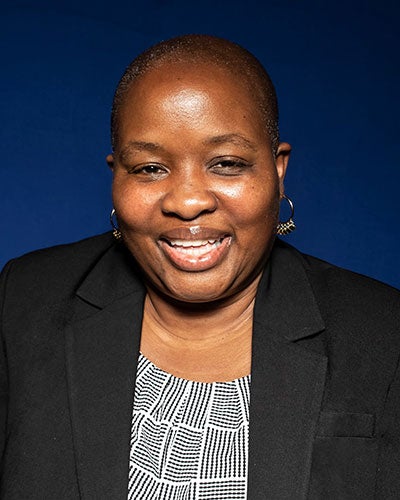Alumna’s Anthropology Education Supports Rewarding Career in Community Engagement
 Dietrich School alumna Nena Ansari’s anthropology background provided a solid base for her impactful career in social services and community engagement.
Dietrich School alumna Nena Ansari’s anthropology background provided a solid base for her impactful career in social services and community engagement.
Ansari’s journey to her current role was indirect: After attending college for a few years immediately after high school, Ansari paused to gain work experience before returning to complete her degree.
“I saw some of my friends who were still in college majoring in certain fields with the goal of obtaining a good job. Upon graduating, several of them continued working in sales like I was because they were not able to find the jobs that they hoped for,” says Ansari. “When I returned to college to complete my degree, I decided to major in something that I found interesting and make it work for me when I got out into the job market.”
So, for her first semester back, Ansari decided to register for an anthropology class.
“I was hooked after the first week,” Ansari remembers. “The thing that I love most about the anthropology field is the concept of looking at people and cultures from an Emic perspective [the perspective that comes from within the culture where the project is situated.]”
To study something through the lens of an Emic perspective, explained Ansari, is to view the world as a member of the culture being studied would view it.
“I strongly believed then and continue to, that analyzing and handling social service issues and the people and communities that are affected by these issues through the lens of an Emic perspective will provide a pathway for developing more effective, wholistic, and humane solutions to these issues,” Ansari explains.
While her initial post-college plans were to become a medical doctor, upon graduation, Ansari instead pivoted to work in social services.
“I had to face the fact that math and science are not my strongest subjects,” says Ansari. “After dealing with that reality, I decided to use what I had learned in my anthropology courses and go into the social service field.”
This pivot ended up being an extremely rewarding decision. Ansari built a 17-year-long career working for several non-profit agencies in the Pittsburgh area before coming to work in the Human Research Protection Office at Pitt.
“After a couple of years there, I felt myself longing to work in an area that was connected to providing services to the community,” says Ansari. Now, Ansari handles operations for the Community Engagement Centers.
“I feel that my current work here at Pitt is an extension or continuation of my previous work in the non-profit arena,” says Ansari. “My favorite thing is assisting local minority business owners and community agencies with navigating the University’s systems, to ensure successful receipt of sponsorships and payments for services.”
Throughout her career, Ansari has drawn on her anthropology training and the Emic view to inform her work. “This view guided and shaped my work during those 17 years and continues to do so in my current work with the Community Engagement Centers.”
In addition to her work with Pitt, Ansari co-runs the Professional Barber Institute, a training institution she founded with her brother.
“My brother Wahad Ansari has been in the barbering field for over 20 years. He is a master barber, barber manager, and barber teacher. He has owned and operated Three Generations Barbershop since 2001,” Ansari says. “In 2012, he began providing aspiring youth with the training hours required to take the Pennsylvania barber licensing exam.”
In 2014, Ansari and her brother collaborated to expand this endeavor by founding the Professional Barber Institute, which welcomed its inaugural class in July of 2018.
“Wahad handles the curriculum development, teaching, and runs the day-to-day operations of the Institute,” says Ansari. “I handle the fiscal, grant writing, recruitment, and student support services.”
Ansari says her time at Pitt supports her meaningful work within the Professional Barber Institute.
Says Ansari, “The course work for my degree and experience in social services provide me with the tools to support the fiscal maintenance of the Institute, as well as assisting our students with resources to overcome their barriers during their time with us, to guarantee that they will be prepared for employment, teaching and ownership in the barbering industry upon graduation.” She also credits Career Services and her participation in extracurricular activities including student government, Pitt Program Council, and writing for The First Degree (the College of General Studies student newspaper) for setting her up for postgraduate success.
“I am happy to be working in and supporting the Homewood community, where I was born and raised, as well as the Hill District, where my parents were born and raised and my extended family resided for many years,” Ansari says. “I am also delighted to be following the legacy of my late paternal aunt who was one of the University’s longest-serving female employees. Being able to play a role in guaranteeing that my communities [Homewood, Hill District, and others] benefit from Pitt’s resources is a privilege that I feel blessed to have been entrusted with.”
